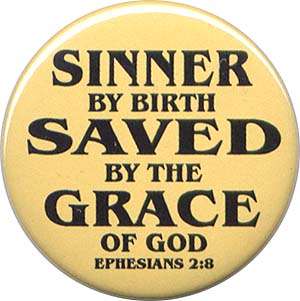because it reminds you of innocence,
and it smells like me, you can't get rid of it, cos' you remember it,
all too well".
all too well".
Taylor Swift - from the album, Red.
So there I was, listening in on a conversation on spirituality, and wondering where I might jump in with a comment, when a familiar theme is expressed -religion of any sort is finished... science is the only game on the block which counts now, so man up or ship out.
There's a fascinating conversation on You Tube* between Richard Dawkins and Physicist Stephen Weinberg. After laying out their common understanding that, in science, using 'God' has merely been a metaphor for the unknown, they begin to unpack the real state of affairs with regards to the limitations of what we know (something, incidentally, which was truly amplified a few weeks ago by the latest information from CERN). Weinberg freely admits that when it comes to unpacking why things are the way they are, science is probably going to fail to really answer or resolve the cardinal issues (i.e. the reason why the universe is how it is), and that we have to accept this as just part of the human tragedy.
Back in the mid-nineties, science writer John Horgan provided a provocative look at the nature of what the prevailing view of such men gave our culture in his work, The End of Science, in which he, in part, concluded that God may indeed be something more than a useful metaphor. The reasons for such a conclusion are stark.
In spite of scientists telling us that what we see is merely an "illusion" of design, there are clearly forces at work that beg to differ. The Cosmological constant, set to one part in a trillion, trillion, trillion, trillion, trillion, trillion, trillion, trillion, trillion, trillion, trillion, is a staggering example of fine-tuning.
Without such manner of exactness, we would never have come about, and the universe would be little more than an expanse of gases.
Weinberg is entirely honest when he states that this places "us" (the scientific community) in a 'fix' which is often not stated well (hence, the confidence of the familiar statement in my recent conversation). This is no doubt because the two alternative approaches to such laws being designed currently provided by popular hypothesis (1)the multiple universe or (2) a TOE which includes data on such constants so far unknown) is, as Weinberg notes, very much situated in the realms of 'what if' thinking, with nothing of substance to support them, so for those who cannot entertain the possibility of design, the human condition must, ultimately, be one of total tragedy - that there probably is no answer, so the laws of entropy (and for the natural realm, death) reign supreme.
I expressed these realities in the conversation, suggesting that true religion may offer us something far more objective than we realize, and the response was fascinating. Whilst those holding to an atheistic perspective chose to personalize their scorn of those 'who believe' (easier, for sure, than considering the ramifications of scientific honesty), those who had been advocating spirituality sought to find solace in 'something like' buddhism or hindu views, especially in what Chesterton defined as the dreadful refuge of the 'god within', at which point I raised the matter of Jesus Christ. The response was what you'd expect - the gospels cannot be trusted, leading to my sourcing non-biblical writings of the earliest period which verify that Jesus lived, was crucified and remarkably began a movement that grew so quickly that it became a major thorn to the empire (presumably, as these writings note, because of what these Christians were teaching about Jesus being God and defying death).
The response (aside from a few murmurings) ... Silence.
And we know why.
We seem to want our place in the universe to be either something we totally define (and thereby control) or, if we cannot have that, a construct which means it all amounts to nothing (any 'design' is pure fluke, as in Douglas Adam's 'Hitch-hiker's" stories), but what if that isn't the reality at all... what if the actual fine-tuning laws that have been discovered behind our being here do indeed express design, and that 'designer' has come amongst us? Doesn't that speak to the necessity of our rejecting what we view as our "necessary fictions"?
There is something much deeper going on.
As Bertrand Russell once expressed it in a letter:
As Bertrand Russell once expressed it in a letter:
I am strangely
unhappy because the pattern of my life is complicated, because my nature
is hopelessly complicated; a mass of contradictory impulses; and out of
all this, to my intense sorrow, pain to you must grow. The centre of me is
always and eternally a terrible pain-a curious wild pain-a searching
for something beyond what the world contains, something transfigured and
infinite-the beatific vision-God-I do not find it, I do not think it is to be
found-but the love of it is my life -it's like passionate love for a ghost.
At times it fills me with rage, at times with wild despair, it is the
source of gentleness and cruelty and work, it fills every
passion that I have-it is the actual spring
of life within me.
(October 23, 1916 to his lover Colette).
Note what Russell says here - he longs for something beyond himself... A desire as deep as hunger or passion which longs for satisfaction for it is essentially what is at the centre of existence. He could never find what he so needed - his world-view wouldn't provide what was required, but science and philosophy can point further and deeper, as I've sought to show above.
(October 23, 1916 to his lover Colette).
Note what Russell says here - he longs for something beyond himself... A desire as deep as hunger or passion which longs for satisfaction for it is essentially what is at the centre of existence. He could never find what he so needed - his world-view wouldn't provide what was required, but science and philosophy can point further and deeper, as I've sought to show above.
Perhaps, then, we should end with a valid observation from a Scientist.
Albert Einstein once noted:
Albert Einstein once noted:
"No one can read the Gospels without feeling the actual presence of Jesus... No myth is filled with such life".
(Saturday Evening Post interview, October 26th, 1929).
As I sought to submit in the conversation, it is indeed time to do more than just 'remind' ourselves of such 'innocence' (the hard truths about our understanding of the universe and the choice to often ignore key material that clearly points us to what is going on), and thereby recognize what we cannot escape....
The God who is there.
The God who is there.
*Find the video at: https://youtu.be/EGL8SesIo6Y
John Horgan's Book at Amazon: http://www.amazon.co.uk/dp/0465065929




